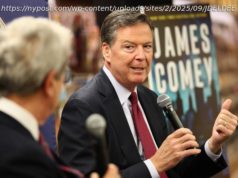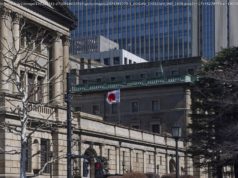Here’s what you need to know about the week’s top stories.
Here are the week’s top stories, and a look ahead.
1. Global warming threatens American lives, cities and jobs, according to a major report by 13 federal agencies, unless the U. S. takes significant steps to rein it in.
At the report’s heart: Predictions are coming true — record wildfires, increasing floods, disrupted supply chains — and it could get much worse. Fire season could spread to the Southeast, crop failures could desolate the Midwest and cascading disasters could knock 10 percent off the U. S. economy by 2100.
The findings in the report are directly at odds with President Trump’s agenda of environmental deregulation, which he argues will spur economic growth. Here are five key takeaways.
The report cited California’s recent wildfire seasons as a case of worsening effects: Droughts create fire conditions, fires grow more destructive, smoke spreads and the authorities can never rest.
Our reporters traveled to Northern California, where the survivors of the Camp Fire, burning in the town of Paradise, above, found reasons to be grateful on Thanksgiving; and to Southern California, where fires incinerated movie sets and hiking trails near Malibu.
Here’s the front page of our Sunday paper, the Sunday Review from Opinion and our crossword puzzles .
____
2. Chief Justice John Roberts rebuked President Trump, ending years of studied restraint in the face of the president’s attacks on the judiciary.
In response to Mr. Trump’s criticism of a ruling he did not like — he said “an Obama judge” was to blame — Chief Justice Roberts, above, defended judges’ independence. “We do not have Obama judges or Trump judges, Bush judges or Clinton judges,” he said.
It may be a turning point: Since the arrival of two Trump appointees to the court, Chief Justice Roberts has moved to its center, a change that gives him extraordinary power and may have helped spur the statement.
Leading conservatives offered measured support for the chief justice, though they praised the transformation of the courts engineered by the White House counsel, Don McGahn.
That same counsel, now departed, rebuffed the president’s desire to use the Justice Department to prosecute two political adversaries: Hillary Clinton, his 2016 opponent, and James Comey, the former F. B. I. director.
____
3. A federal judge blocked President Trump’s proclamation that banned migrants from applying for asylum anywhere but a port of entry.
The temporary restraining order means the Trump administration must resume accepting asylum claims from migrants, no matter where or how they entered the U. S., at least until the case is decided.






